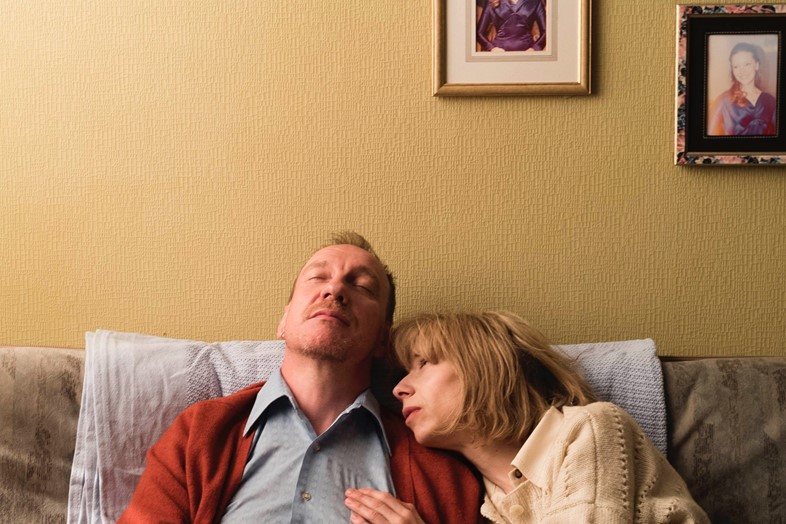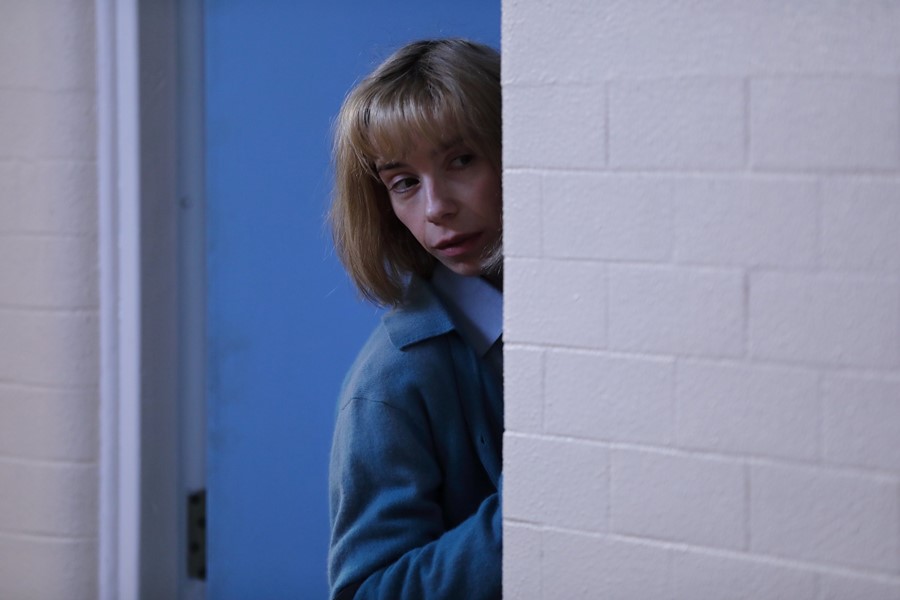As his latest directing feat Eternal Beauty hits UK screens, Welsh actor and director Craig Roberts reveals the story behind its heart-warming protagonist and the creation of her singular world
The depiction of mental illness on screen – especially when it comes to schizophrenia and psychosis – is usually glib; the “mad genius”, the beautiful woman who’s “cracked”, the rampaging killer who hears voices, all too familiar archetypes. But as anyone with any experience of such illnesses will tell you, these portrayals are, at best, predictably shallow and, at worst, horribly stigmatising. Which is why Eternal Beauty, the new film from Welsh actor and director Craig Roberts, is such a welcome breath of fresh air.
It tells the story of Jane (Sally Hawkins), a wonderfully strong and characterful woman living with paranoid schizophrenia, and traces the highs and lows of her life over the course of a year with humour, warmth and poetic verisimilitude.
The movie is Roberts’ second feature film and has been a long time in the making. “I started writing it when I was editing my first film (Just Jim) in 2015 and I didn’t really know what I wanted to write,” the talented 29-year-old, who rose to fame as the awkward teenage protagonist in Richard Ayoade’s 2010 indie drama Submarine, tells AnOther. “I have somebody in my life that has experienced similar themes to the character in this movie and I was fascinated by this woman and wanted to explore how she navigated her way through the world.”
Roberts’ initial attempts to do so left him unsatisfied. “The first draft was very different. It was a lot darker,” he says. “There was no comedy really. I think almost everything I’d been exposed to surrounding this theme was a horror film where the person living with some form of schizophrenia is possessed or seen as damaged. I was afraid to put humour in it at first and to stay true to what I knew, but I’m so glad I did. There was this question, I suppose, of whether we could change the outlook on this perceived weakness and make it more of a strength really, as opposed to somebody being a victim.”

And there’s no doubt that that’s exactly what he and Hawkins – who played his mother in Submarine, and for whom he wrote the role – accomplished. “Sally and I spent two years talking to each other and sending ideas around – be it colours, movie references, songs or paintings. So she knew the character very well by the time we started shooting,” Roberts explains of the actor’s remarkably nuanced and sensitive performance. “We knew what we wanted to create, so when we stepped on set and Sally was this character, I think it was a lot clearer for everybody else.”
Jane is a woman you can’t help but fall for, not least because she’s so unabashedly herself. Early on in the film, dressed in her signature outfit of white heels at least two sizes too big for her and a beige, complexion-draining trench coat, she heads for Christmas lunch at her parents’ house, her arms laden with presents. Upon arriving, she announces that, this year, bored of socks and soap, she has purchased her own gifts for her dysfunctional family to give her. She hands each of them a receipt before opening the presents with feigned surprise and genuine delight.
Jane’s wit and playfulness is contrasted with bouts of heart-wrenching sadness and anxiety – stemming from a series of scarring rejections in her youth, which triggered her mental illness – as well as disorienting episodes of psychosis when she decides to stop taking her pills. At every turn, we’re presented with life through Jane’s eyes – hers is an otherworldly universe in which she drinks bright blue drinks through a straw and watches strange, outdated adverts on television, bringing to mind the work of Charlie Kaufman or Michel Gondry.
We journey with her as she remembers painful flashbacks from her formative years (where she is played by rising star Morfydd Clark), lived out with her two sisters, her silent, resigned father and her brittle mother (the ever excellent Penelope Wilton). We witness her excruciating doctor’s appointments with a physician who will accept nothing less than a declaration of complete contentedness from his patients (as per the mysterious painting in his office, titled In My Oils – a Welsh phrase denoting the sheer delight in being surrounded by what pleases you). And we observe her encounters with a kooky fellow patient (David Thewlis) and the whirlwind love affair that ensues – replete with guitar serenading (“Jane, you’re my cocaine”) and awkward sex – much to the dismay of her caring older sister Alice (Alice Lowe).
Our experience of Jane’s shifting states is enhanced by the film’s kaleidoscopic camerawork and clever use of colour and lighting to transform its spaces according to Jane’s perception of them. To achieve the right look and feel of the film, Roberts says he showed his crew a number of films, including citing Paul Thomas Anderson’s Punch-Drunk Love, Ingmar Bergman’s Through a Glass Darkly and Krzysztof Kieślowski’s Three Colours: Blue, as well as some early Scorsese camera tricks, for reference.
“The camera movements had to be motivated by the character,” Roberts explains. “I wanted to put pressure on the character, so the camera would zoom into the protagonist a lot, or would whip to her when she least expected it, to add to her sense of anxiety. I wanted it to feel like we could be with her the whole time,” he adds. “I especially never wanted anybody to be laughing at Jane, I wanted them to be laughing with her. She’s wicked in places and that’s something we should be behind.”
The modest and affable Roberts – who is currently working on his forthcoming comedy-drama The Fantastic Flitcrofts, about the British golfer and plucky hoaxer Maurice Flitcroft (to be played by Mark Rylance) – is keen to stress how much he “lucked out” with his cast. “I didn’t have to do much as a director – just make sure that camera was turning,” he laughs. And, while he’s evidently a natural when it comes to both writing and filmmaking, there’s no denying the collective power of his ensemble. Each character has their own flaws and struggles, and each actor is perfectly cast to convey them, from Billie Piper’s hilarious turn as Jane’s shameless younger sister to Wilton’s ice-cool yet caring portrayal of the materfamilias to Thewlis’ perfect balance of charm and self-absorption.
In many ways, in fact, Jane is the film’s most grounded character. As everyone else prattles on about being in their oils, while appearing unremittingly miserable, she’s busy asking, “What if there’s no such thing as happiness, just moments of not being depressed?” And while they all struggle to hide their evident feelings of loneliness and betrayal, Jane confronts her own tribulations with humour: “People think I must be lonely but that’s not true – I’ve got people talking to me all day.” The result is a truly uplifting and invigorating film that, just like its protagonist, is full of daring and heart.
“I hope its message is that you should be kind to people,” says Roberts as our conversation draws to a close. “It’s about understanding someone else’s situation and that, of course, life is very hard so you just need to take every day as it comes, figure out what your superpower is and try and use that for good.”
Eternal Beauty is in cinemas nationwide and on demand from October 2, 2020.
